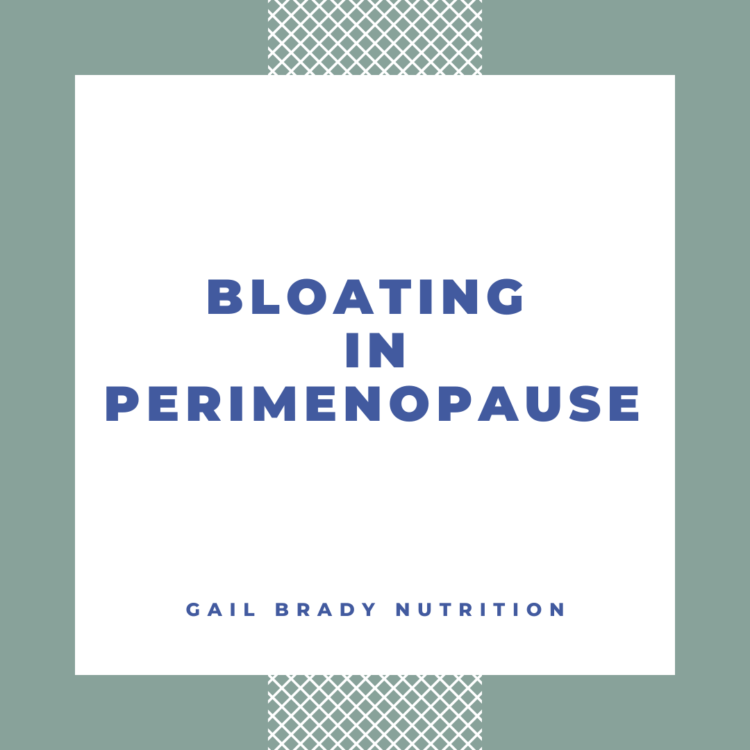Bloating is a symptom of perimenopause that I hear about a lot.
Bloating is often described as a tightness or feeling of fullness in the abdominal area. There are numerous reasons why it may happen, many of which are not specific to peri-menopause.
These can include; stress, imbalances in gut bacteria, low stomach acid, excess salt, smoking, dietary changes such as an increase in fibre, high alcohol consumption, antibiotic use, food intolerances, dehydration, constipation, poor posture, and consuming sugar alcohols such as xylitol and sorbitol.
It can also be normal to experience bloating following a large meal.
Bloating in Peri/menopause
Research has found that gut health can be affected by decreasing levels of oestrogen in perimenopause.
Animal models have shown that when oestrogen levels decline there can be an increase in gut inflammation, increased permeability of the gut wall lining (leaky gut), and a slowing down of gut motility (the contraction of muscles that moves waste along in the intestines).
In addition, one of the roles of oestrogen within the body is to control fluid levels. Fluctuating levels of oestrogen levels may cause your body to retain water and result in bloating.
Menopause and ageing also affect your digestion. Bile production can decline and this can alter your body’s ability to break down dietary fats causing flatulence and bloating.
Here are some tips for managing bloating
- Support your gut health – Gut health testing is one of the tests I most frequently recommend in my practice. This can help to identify the underlying cause of bloating and other digestive issues.
- Manage your stress levels – High levels of stress may mean that you produce fewer digestive enzymes and less stomach acid. This can make it harder for you to break down foods when you are stressed. A simple and practical tool to support digestion is to take a few deep breaths before eating.
- Exercise regularly – this helps to keep the digestive system moving
- Stay hydrated – Drink around 2 litres a day of water a day, more if it is hot or you exercise a lot
- Eat smaller meals or portion sizes – to lessen the load on your digestive system. Chew food thoroughly and eat mindfully ie not at your desk, in front of the TV or your laptop computer and not gulping your food down
- Avoid carbonated drinks – these will fill your stomach with air/gas
- Pay attention to the foods which may make bloating worse for you. Soft cheeses and beans and pulses are common culprits. For some people, it can also be onions, cabbage and other brassica vegetables, and fermented foods
- Avoid chewing gum – This can cause you to swallow too much air
- Watch your salt intake – for some people too much salt can cause bloating and fluid retention.
- Fennel or peppermint tea may be helpful
If you experience persistent bloating that lasts longer than 2 weeks, it is recommended that you consult with your GP or healthcare provider.
IF you would like to find out more about how personalised nutrition and lifestyle could help you to regain control of your health and hormones watch my FREE video HERE




